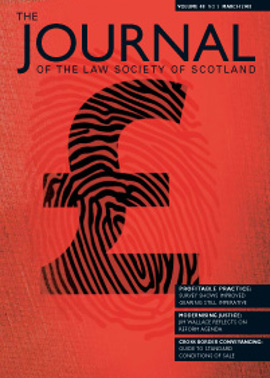Book reviews
The first edition of this book was published in 1986, and ever since it has been one of those to which I have referred students and others as providing a good overview of Public International Law. Other denser books have been published, to which one would turn for more detail, but amongst the competitors in the ‘over-view’ market Wallace is one to be seriously considered. One of my criteria in recommending a text is its style: some find the writing of one author communicates better with a particular reader than another. Wallace has a style which, by the reports I receive, appeals to a broader spectrum than many similar texts.
Naturally progress means more material, a bigger book and an increased price, but I would hope that the urge to include will be kept under control in future editions. The last edition was in 1997. In this edition it is good to see a useful indication of the Draft Articles on State Responsibility adopted by the International Law Commission in November 2001. The International Criminal Court established now in terms of the 1999 Rome Statute and the International Tribunal on the Law of the Sea created under the 1982 UN Convention on the Law of the Sea, are also outlined. Unfortunately something has gone wrong in the initial discussion of the Rome Statute, with two cross-references to an earlier footnote, which is on a different matter, and it does not appear in the Table of Principal International Conventions and lacks sourcing.
Of course, within the constraint of an overview account, which is also designed to be used with one of the many ‘source-books’ on International Law, simplicity can produce distortion. For example, it may be misleading to put the Moon Agreement of 1979, with nine ratifying and six signatory states none of which are space-competent, on a par with the Outer Space Treaty of 1967 with its ninety-seven ratifiers, and twenty-two signatories out of a UN membership of one hundred and ninety, or even to suggest it may clarify the earlier instrument. Rather the likelihood is that the Moon Agreement is dead: but that is to comment on Space Law. However, it highlights a problem for such texts as these – mention of a treaty may give the impression that it has a greater practical effect than it may actually have.
Readers of the Journal will recollect the argument as to how or whether International Law forms part of the Law of Scotland, and whether it could be called on to justify entry to and actions taken within naval premises on the Clyde. As I write there is discussion as to Iraq. Those who want to know more about International Law will find Wallace a good introduction to a fascinating area of Law which affects us more than many realise.
F. Lyall, University of Aberdeen
In this issue
- Delivering a modern justice system
- Conveyancing aspects of cross border transactions
- What the more profitable firms are getting right
- Structure your thoughts to cope with change
- What price equality?
- A handy tool for the family lawyer
- Reminder of the need for separate craves
- It could happen to you
- Reducing the burden of keeping track of time
- The Data Protection Act – what you need to know
- Seven steps to effective risk management
- Client relations
- Plain speaking
- Europe
- Website reviews
- Book reviews






